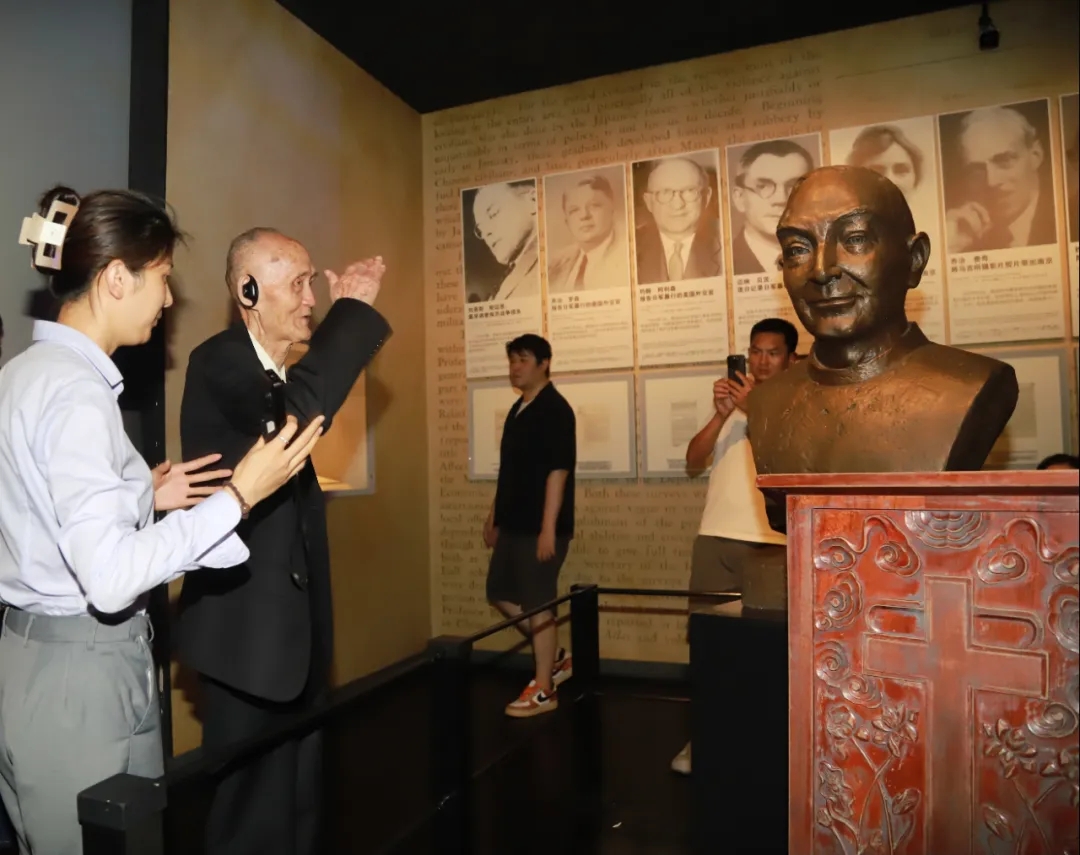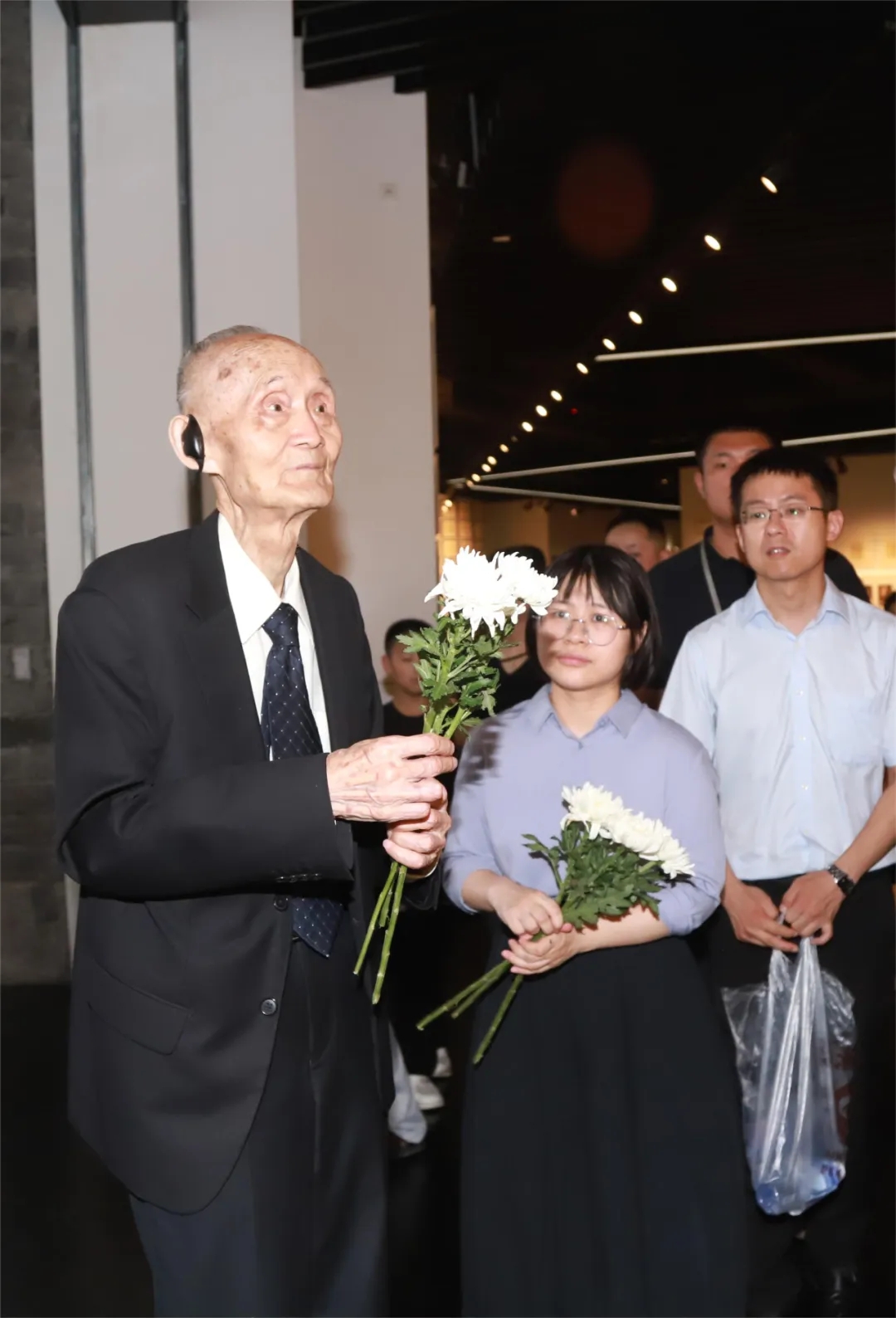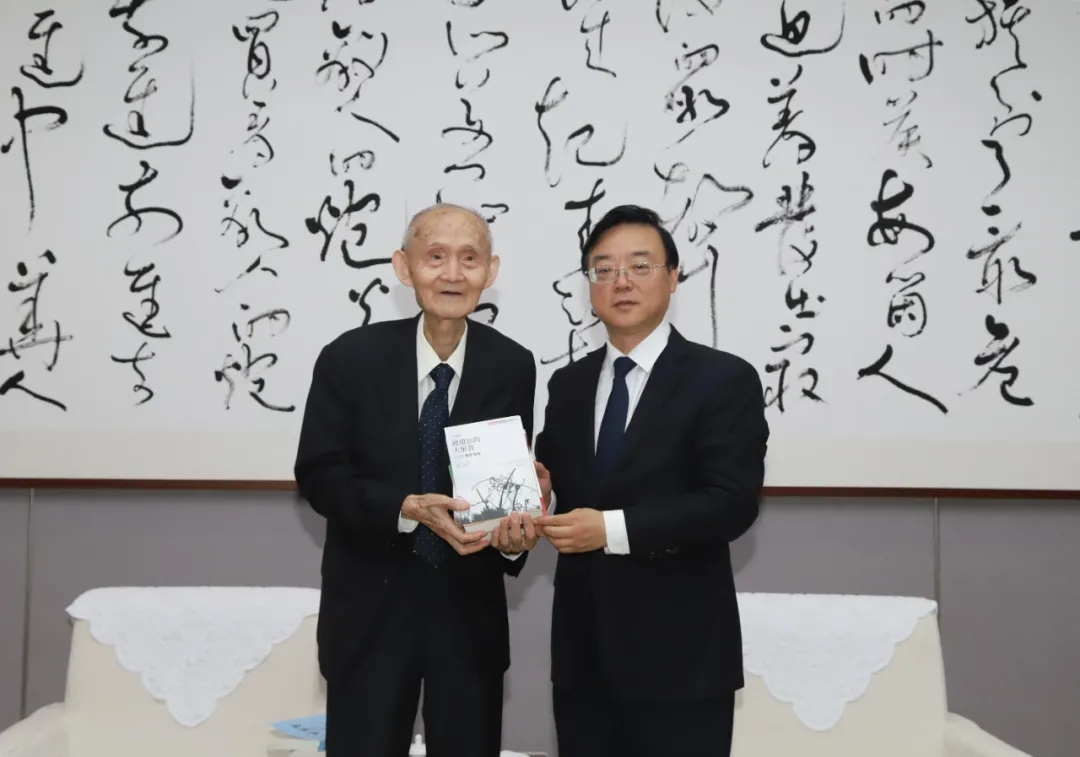Veteran from Taiwan Shows Deep Sense of Patriotism
On July 4, Gao Binghan, accompanied by Qiu Qixian, secretary-general of the Huiyuan (Return to Roots) Cultural Exchange and Development Association, visited the Memorial Hall.During his visit, Mr. Gao donated six volumes of precious books, newspapers, and handwritten correspondence to the Memorial Hall, including a record of Japan’s invasion of China compiled by Liu Jian and the original verdict against Japanese war criminal Tani Hisao. These historical materials exemplify the deep patriotismof the nearly 90-year-old lawyer from Taiwan. Mr. Gaowas born in Heze City, Shandong Province, China in 1935. At the age of 13, he left his hometown for Nanjing and later moved to Taiwan. After the Taiwan authorities allowed family visits to the mainland in 1987, Mr. Gao made a resolute decision to return the ashes of over 100 veterans to their homeland. His dedication to this cause earned him the 2012 Touching China Award, an annual award that recognizes the country’s most inspiring role models.
While visiting the Prologue area, Mr. Gao stood silently,his brow furrowed as he gazed at the photos of Nanjing Massacre survivors lining the walls. His face clouded with a somber expression when he sawimagesdocumenting the atrocities committed by Japanese invaders. At the wall listing the names of soldiers who sacrificed their lives during the Battle of Nanking, he offered chrysanthemums and rendered a solemn salute.

Led by the guide, Mr. Gao moved on to the “Humanitarian Assistance” section, where he learned about the stories of international friends who remained in Nanjing during the Massacre. Overcome with emotion, he gently touch the tombstone of John Rabe, a foreign hero who protected Chinese civilians, and offered a salute as a mark of respect. He also paid homage and saluted the statue of John Magee, commending his righteous deeds.

Mr. Gao spent a long time in front of the display honoring Iris Chang, which features her bookThe Rape of Nanking: The Forgotten Holocaust of World War II. He raised his thumb in admiration, presented flowers, and rendered a salute before her photograph.

The story that left the deepest impression on Mr. Gao was that of Li Xiuying, a survivor of the Nanjing Massacre who bravely resisted a sexual assault by Japanese soldiers. Mr. Gao was deeply moved to learn that the soldiers had inflicted 37 bayonet wounds on her face, legs, and belly. “She was just 19 years old and seven months pregnant!”Mr. Gao wiped away tears with his handkerchief as he recounted this harrowing tale.
Mr. Gao became acquainted with the history of the Nanjing Massacre through General Niu Xianming, a participant in the Battle of Nanking and a survivor of the Nanjing Massacre.During this visit, Mr. Gao donated six books, including The Rape of Nanking: The Forgotten Holocaust of World War II by Iris Chang (published by Commonwealth Publishing).He also donated a newspaper from Taiwan’s United Daily News reporting on Iris Chang’s passing in 2004, as well as a letter he personally wrote to the Memorial Hall before his visit to Nanjing.

Gao Binghan (L) donated precious documents to the Memorial Hall
In the autumn of 1948, Mr. Gao’s mother sent him to an elementary school in the Yuhuamen area of Nanjing, where he stayed for three weeks before moving to Taiwan. In the early 1960s, Mr. Gao graduated from the law department of Taiwan’s National Defense Management Academy (today’s Management College, National Defense University). After graduation, he served as a judge for 11 years and as a lawyer for five decades. This is his third visit to Nanjing. “It is a pity that the primary school is no longer there,” he said with a sense of nostalgia.

Several visitors at the Memorial Hall recognized Mr. Gao as a recipient of theTouching China Award. He truly deserved the award. Mr. Gao serves as the president of the Heze Natives Association for veterans living in Taiwan, where members frequently gather to alleviate their homesickness, speaking in their native dialect. A phraseoften repeated among them is: “In life, we are wanderers; in death, we shall not become wandering spirits!” Mr. Gao recalled, “I was the youngest member of the association. When a few friends who lived alone in Taiwan joined me for the Chinese Lunar New Year’s Eve feast at my home, they entrusted me with the task of bringing their ashes back to the mainland after the opening of people-to-people communication across the Taiwan Strait.”Before his departure, Mr. Gao expressed his commitment to giving lectures in schools across Taiwan to educate young people about the history of the Nanjing Massacre. He also offered to provide historical materials to the Memorial Hall’s documentary team if needed.

